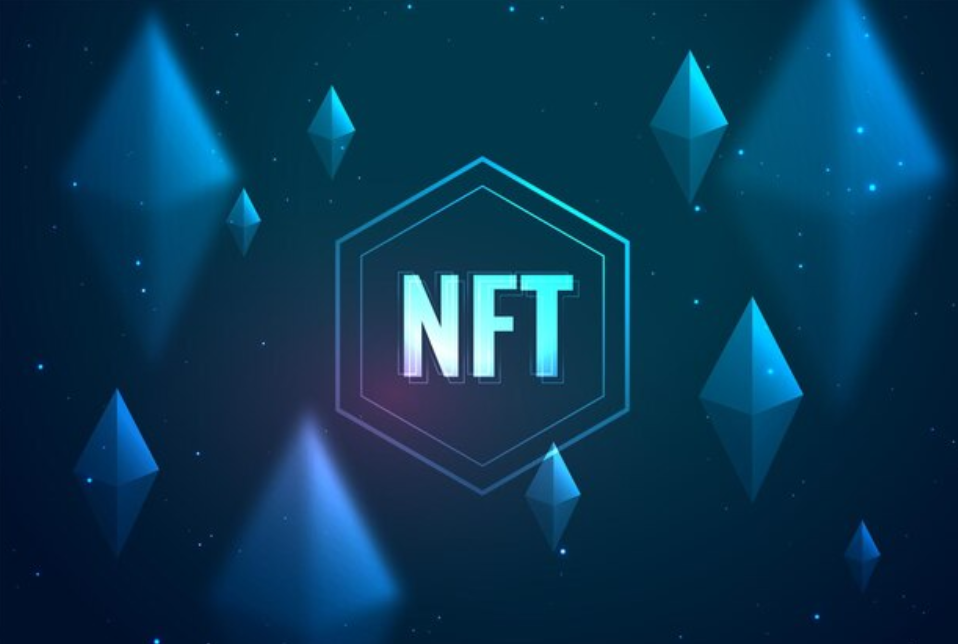
Cryptocurrency is a digital or virtual form of currency that uses cryptography for secure financial transactions, control the creation of new units, and verify the transfer of assets. Unlike traditional currencies issued by governments (fiat currency), cryptocurrencies operate on decentralized networks based on a blockchain.
Digital Nature: A digital currency exists purely in digital form. It doesn’t have a physical manifestation like coins or bills.
Decentralization: A crypto asset operates on a decentralized network, usually a technology called blockchain, which is a distributed ledger that records all transactions across a network of computers. This decentralization means that no single entity, like a central bank, controls the currency. Instead, it’s maintained by a network of computers (nodes) worldwide.
Cryptography: Encryption techniques are used to secure transactions and control the creation of new units. This ensures the security and integrity of the currency and its transactions.
Blockchain: A blockchain is a public, distributed ledger that records all transactions across a network. Each set of transactions is grouped into a “block” and added to the “chain.” This creates a transparent and immutable record of all transactions, which enhances security and trust.
Mining: Some cryptocurrencies, like Bitcoin, use a process called mining to validate transactions and add them to the blockchain. Miners use powerful computers to solve complex mathematical problems, and in return, they’re rewarded with newly created coins. These coins utilize a proof-of-work consensus mechanism.
Staking: There are cryptocurrencies that rely on a proof-of-stake or another type of consensus mechanism to reduce the negative effects of mining and enable a more efficient environment for storing crypto and transferring crypto coins.
Variety: There are thousands of cryptocurrencies, each with its unique features and purposes. Bitcoin is the first and most well-known, but there are others like Ethereum, Ripple, Litecoin, and many more, each with its own underlying technology and use cases.

Understanding cryptocurrency in 2024 is crucial for multiple reasons. Cryptocurrencies have the potential to significantly impact the future of finance. As digital currencies continue to gain traction and new crypto trading apps emerge, they might change how we perceive and handle money, potentially affecting investments, banking, and even day-to-day transactions.
Understanding the cryptocurrency market and how to invest in cryptocurrency could open up plenty of opportunities. Many individuals and institutions are investing in cryptocurrencies, and having a grasp of this field can be beneficial for making informed investment decisions.The underlying technology of cryptocurrencies, blockchain, is not just about currencies. It has implications across various industries, from supply chain management to healthcare. Understanding cryptocurrency and crypto apps means understanding blockchain, which is becoming increasingly important in various sectors.The acceptance and integration of cryptocurrencies could potentially reshape the global economic landscape. It might influence how countries interact financially, affecting trade, remittances, and even the balance of power in the financial world.Governments and regulatory bodies are continuously adapting to the growing presence of cryptocurrencies. The Securities and Exchange Commission in the USA, the Financial Conduct Authority in the UK, MiCA in Europe – it is a must to know these regulators and regulations to ensure the legal environment where this new asset type operates.

Cryptocurrencies are known for their volatility. Understanding the risks associated with this market is crucial for anyone involved or considering involvement, especially in virtual currency trading or investment.
In essence, understanding cryptocurrency in 2023 is not just about the virtual currency and crypto market as is it; it’s about comprehending the transformative technology and its potential impact on various aspects of our lives, from finance to technology and beyond.
Cryptocurrency is a digital or virtual form of currency that uses cryptography to secure transactions on both centralized exchanges and decentralized exchanges, control the creation of new units, and verify the transfer of assets on cryptocurrency exchanges between trading accounts and crypto wallets.
Cryptocurrency operates through a combination of technologies and processes, primarily using a decentralized system based on blockchain. While traditional currencies (fiat currency) are centralized, and controlled by governments and financial institutions, digital assets operate on decentralized networks. Instead of a central authority overseeing transactions, a network of computers (nodes) maintains and verifies the transactions.
The backbone of most cryptocurrencies is the blockchain, a distributed ledger that records all transactions across the network and keeps the users’ private keys. It’s a chain of blocks, each containing a list of transactions. Each block is linked to the previous one, forming an immutable and transparent record.

When a transaction occurs, it’s broadcast to the network and grouped with other transactions in a block. Nodes on the network verify and validate the transaction using complex cryptographic algorithms.
To ensure transaction validity without a central authority, cryptocurrencies use various consensus mechanisms. The most common, used by Bitcoin, Bitcoin Cash, and others, is Proof of Work (PoW), where miners compete to solve complex mathematical puzzles to validate transactions (and to allow users to buy and sell tradable assets) and add them to the blockchain. Other cryptocurrencies use Proof of Stake (PoS) or alternative consensus mechanisms.
In PoW-based cryptocurrencies like Bitcoin, miners use powerful computers to solve these complex mathematical problems (mining Bitcoin occurs this way). When a miner successfully solves the puzzle, they add the validated block to the blockchain and receive a reward in the form of newly created coins as transaction fees.
Cryptography ensures the security and integrity of transactions. Public and private keys are used to initiate and authenticate transactions and are stored in a crypto wallet. Each user has a private key (known only to them) that proves ownership of their cryptocurrency and a public key used to verify transactions.

Several cryptocurrencies were particularly popular and widely recognized. The popularity of cryptocurrencies can fluctuate based on various factors like market trends, technological advancements, and regulatory changes. Here are some of the most popular cryptocurrencies at this time.
The first and most well-known cryptocurrency, is often referred to as digital gold. It laid the foundation for the entire crypto industry and remains the most dominant and widely adopted cryptocurrency.
Not just a digital currency but a platform enabling smart contracts and decentralized applications (dApps) that are increasingly used by crypto exchanges and other crypto-related businesses. Its native currency, Ether, is used for transactions and as a fuel for the network. High trading fees are another notable feature of this network.

Developed for enterprise use, Ripple aims to facilitate fast and cost-effective cross-border payments, especially for banks and financial institutions. It is aimed not to replace fiat currency but to merge crypto assets with the traditional financial system for a better future of the global financial system.
Often described as the silver to Bitcoin’s gold, Litecoin was created as a faster and cheaper alternative to Bitcoin, with quicker block generation times and lower transaction fees. The Litecoin blockchain is also more efficient than the Bitcoin blockchain and is able to process more transactions per second.
A fork of Bitcoin was created to address scalability issues, aiming to be a more efficient medium of exchange.
A blockchain platform known for its focus on sustainability, scalability, and transparency, offering support for dApps and smart contracts.
A platform that enables different blockchains to transfer messages and value in a trust-free fashion, aiming to create a fully decentralized web.
A decentralized oracle network that aims to connect smart contracts with real-world data.
A platform designed to connect banks, payment systems, and individuals to move money quickly, reliably, and at minimal cost.
Known for its high throughput and low fees, Solana is a high-performance blockchain supporting decentralized apps and crypto projects.

Cryptocurrency holds importance and offers several potential benefits compared to traditional fiat currencies.
Decentralization and transparency are one of such benefits.This decentralization reduces the need for a central authority (like a government or bank) to control or verify transactions in crypto holdings. The transparent nature of blockchain allows anyone to view transactions, enhancing accountability and trust.
Global accessibility is another benefit of digital assets compared to traditional money. Cryptocurrencies transcend borders, allowing for borderless transactions performed through global crypto exchanges, both centralized exchanges and decentralized exchanges. They enable quick and relatively inexpensive cross-border payments compared to traditional banking systems, which might involve multiple intermediaries and can be slower and more expensive.
Cryptocurrencies use strong cryptographic techniques to ensure a top security level for all transactions, making them inherently secure. Each transaction is recorded on the blockchain, making it extremely difficult to alter or counterfeit, increasing security and reducing fraud.
Cryptocurrencies have the potential to provide access to financial services for the unbanked or underbanked populations. With just an internet connection, a smartphone, access to cryptocurrency exchanges, and a digital wallet individuals can access and participate in the cryptocurrency ecosystem.
The underlying technology, blockchain, has vast potential beyond currencies and crypto trading apps. It can revolutionize various industries, including supply chain management, healthcare, and voting systems, enhancing transparency, efficiency, and security for all crypto users.
Cryptocurrencies offer investment opportunities and the potential for high returns, attracting investors looking to diversify investment portfolio and benefit. However, this comes with higher volatility and risk. Trading fees also may be high.
However, it’s important to note that cryptocurrencies also come with their own set of challenges, such as volatility, regulatory compliance uncertainty, and security concerns. Additionally, their adoption and acceptance in mainstream financial systems are ongoing processes that may face resistance and regulatory hurdles.
To get started with cryptocurrency, you need to have a crypto wallet. After that, you can purchase crypto on a decentralized exchange, or a centralized exchange, or you can get some coins in airdrops or by earning by benefiting from an affiliate program of a crypto project.

Here’s a general step-by-step guide on how to buy cryptocurrency on a typical crypto exchange.
Always consider the crypto exchange fees associated with each transaction, such as transaction fees, maker and taker fees, withdrawal fees, and deposit fees, as these can vary significantly between cryptocurrency exchanges.

It’s also advisable to conduct thorough research on the cryptocurrency you’re interested in and understand the market dynamics before making any investment. Additionally, always use strong security measures like two-factor authentication to protect your crypto exchange account.

Cryptocurrency wallets are digital tools that allow users to store, manage, and interact with their digital assets. They come in different forms, each with its unique features and levels of security. Here’s an overview of the main types of cryptocurrency wallets.

The software wallets are divided into the following categories.
Wallets are often categorized as hot or cold based on their connection to the internet. Hot wallets (online or connected) are convenient for frequent transactions but more susceptible to hacking. Cold wallets (offline) are more secure but less convenient for regular use. The best crypto exchanges have both cold storage to store their users’ funds, and hot wallets used for trading cryptocurrency.

Custodial wallets are managed by third-party services (exchanges) that they control your funds. Custodial wallets are offered by crypto apps and the best crypto exchanges. Non-custodial wallets provide users with full control over their keys, offering more security and independence.
Cryptocurrency wallets contain pairs of cryptographic keys: a public key (wallet address) and a private key. The public key is shared for crypto purchases and receiving funds, while the private key is used to access and manage those funds. Safeguarding the private key is crucial, as anyone with access to it can control the associated cryptocurrency.
When choosing a wallet, consider factors like security, convenience, the type and frequency of your transactions, the amount of cryptocurrency you plan to store, and which amount you are going to assign for cryptocurrency trading. It’s recommended to diversify your storage by using a combination of wallets, especially for larger amounts of cryptocurrency.

Safeguarding your cryptocurrency is paramount due to its digital nature and irreversible transactions. Here are some tips for securely storing your cryptocurrency.
Hardware wallets, such as Ledger or Trezor, are considered one of the most secure options. They store your private keys offline, away from potential online threats. Keeping your funds in cold storage is always safer than keeping them even on the best crypto apps of cryptocurrency exchanges.
For any online or software-based wallets, ensure you have a strong, unique password. Consider using a password manager to generate and store complex passwords. Implement 2FA wherever possible. This adds an extra layer of security, requiring not only a password but also a secondary form of verification to access your accounts.
Keep your wallet software and any associated applications up to date. Updates often include security patches that protect against newly discovered vulnerabilities.
Make multiple encrypted backups of your private keys and store them in secure locations. Consider using offline methods like a hardware wallet or a paper backup stored in a safe place.
Watch out for phishing attempts, where attackers try to obtain your private information by posing as a legitimate entity. Always verify the authenticity of the sources and never share your private keys or passwords. Always double-check all information whenever you buy and sell crypto.
Consider diversifying your storage by using multiple wallets or forms of storage. Avoid keeping all your cryptocurrency in one place to minimize risk in case of a breach.
Use strong antivirus and anti-malware software on your devices. Be cautious of public Wi-Fi networks and avoid accessing your wallets on unsecured networks.
Stay informed about the latest security practices and potential threats in the cryptocurrency space. Being aware and updated can significantly reduce the risk of falling victim to security breaches.
Remember, the security of your cryptocurrency is your responsibility. Always prioritize security measures and take proactive steps to protect your digital assets.

Blockchain is a decentralized, distributed ledger system used to record and verify transactions across a network of computers. It’s the underlying technology behind most cryptocurrencies, although its applications extend far beyond digital currencies.
Key features of blockchain technology are the following.
Decentralization: Unlike traditional databases that are typically centralized and controlled by a single authority, blockchain operates on a decentralized network. Information is stored on multiple computers (nodes) rather than a single server.
Transparency and immutability: Once information is recorded in a block, it cannot be easily altered without changing subsequent blocks across the entire chain. This immutability ensures that the data stored on the blockchain is resistant to tampering.
Consensus mechanisms: Blockchain employs consensus mechanisms to validate and add transactions to the chain. Common methods include Proof of Work (PoW), Proof of Stake (PoS), and other consensus algorithms that enable agreement among network participants on the validity of transactions.
Security through cryptography: Each block in the chain is linked to the previous one using cryptographic hashes. This ensures the integrity of the data, making it difficult to alter without consensus from the network.
Smart contracts (in some blockchains): These self-executing contracts have terms directly written into code. They automatically enforce and execute contractual agreements when predefined conditions are met such as controlling and setting up trading fees for trading cryptocurrency, selling crypto and buying it, and other operations. Smart contracts are a core component of decentralized finance where people buy and sell crypto, stake it, and perform other operations that enable them to benefit.

Blockchain has applications beyond cryptocurrencies and crypto exchanges, in industries such as supply chain management, healthcare, finance, voting systems, and more. It offers enhanced security, transparency, and efficiency in various processes including those ran by crypto exchanges and DeFi apps by providing a tamper-proof and transparent record of transactions and information.
The technology continues to evolve, with different types of blockchains emerging, including public, private, and consortium blockchains, each tailored for different use cases and varying levels of access and control.
Blockchain has various applications across industries, extending beyond cryptocurrencies, crypto exchanges, and crypto trading. Here are some examples of how blockchain is being used:
Supply chain management: Blockchain is used to trace and track goods along the supply chain. It provides a transparent and immutable record of a product’s journey, ensuring authenticity and reducing the risk of counterfeiting. Companies like Walmart and IBM have utilized blockchain for this purpose.
Finance and banking: Many financial institutions use blockchain for cross-border payments, making transactions faster and more cost-effective. Ripple, for instance, employs blockchain for its payment settlement system, aiming to revolutionize international money transfers. Crypto trading is another application of blockchain. There, traders can benefit from lower trading fees than on any major cryptocurrency exchange, and the transparency that is not offered by any trading platform. Futures trading and margin trading are among those that allow to benefit most.
Healthcare: Blockchain helps securely store and manage patient data, ensuring privacy and interoperability among healthcare providers. Companies like Medicalchain and Nebula Genomics utilize blockchain for secure health data storage and sharing.
Voting systems: Blockchain can offer a secure and transparent platform for voting, preventing fraud and ensuring the integrity of elections. Projects like Voatz and Agora have explored blockchain-based voting systems.
Tokenization of assets: Blockchain enables the creation and trade of digital assets representing real-world assets like real estate, art, or company shares. This allows for fractional ownership and easier transfer of assets. Platforms like Polymath and Harbor facilitate tokenization.
Identity verification: Blockchain provides a secure and tamper-proof system for verifying identities, reducing identity theft and fraud. Projects like uPort and Civic focus on decentralized identity verification.
Energy trading: Blockchain is used to create transparent and efficient systems for peer-to-peer energy trading. Platforms like Power Ledger enable individuals to buy and sell excess renewable energy directly to each other.
These examples showcase the versatility and potential impact of blockchain technology across various sectors. Its ability to provide security, transparency, and efficiency in data management and transactions makes it a compelling solution for numerous applications.

Crypto gaming, also known as blockchain gaming, refers to video games that incorporate blockchain technology and cryptocurrencies into their design and mechanics. These games utilize elements of blockchain to introduce new features, ownership of in-game assets, and unique gameplay experiences.
In traditional gaming, in-game items and assets are owned and controlled by the game developer or publisher. In crypto gaming, these assets are tokenized and stored on a blockchain, allowing players to truly own them. This ownership is recorded on the blockchain, providing transparency and authenticity.
Use of non-fungible tokens is another feature of crypto gaming. Non-fungible tokens are unique digital assets that represent ownership of specific in-game items. They can be characters, weapons, skins, or any other virtual objects. NFTs are stored on a blockchain, allowing players to buy, sell, and trade these unique items, often across different games, platforms, and even crypto exchange services.

Some crypto games enable interoperability, allowing players to use their in-game assets across different games or platforms that support the same blockchain. For example, an item earned in one game might be usable or tradable in another, offering a new level of flexibility for gamers. Additionally, almost all tokens can be exchanged on a cryptocurrency exchange.
Crypto gaming introduces the concept of play-to-earn, where players can earn cryptocurrencies or valuable in-game assets as they progress in the game. This potential for monetization and earning real value through gaming has attracted many players to the crypto gaming space.
Some crypto games involve decentralized governance and development, where decisions about the game’s direction, features, or future updates are made by the community rather than a central authority.
Examples of crypto games include Axie Infinity, Decentraland, CryptoKitties, and Gods Unchained, each implementing various aspects of blockchain and cryptocurrencies to create unique gaming experiences.
Crypto gaming has the potential to revolutionize the gaming industry by giving players true ownership of in-game assets, enabling new revenue streams for gamers, and creating innovative gameplay experiences that were not possible in traditional gaming.
Understanding cryptocurrency isn’t just about the coins themselves; it’s about grasping the transformative technology and its potential impact on various aspects of our lives, from finance to technology and beyond.
The potential impact of cryptocurrency and blockchain extends beyond these examples. As the technology evolves and gains wider acceptance, it’s likely to introduce new ways of conducting business, managing data, and interacting within various sectors, offering efficiency, transparency, and security.